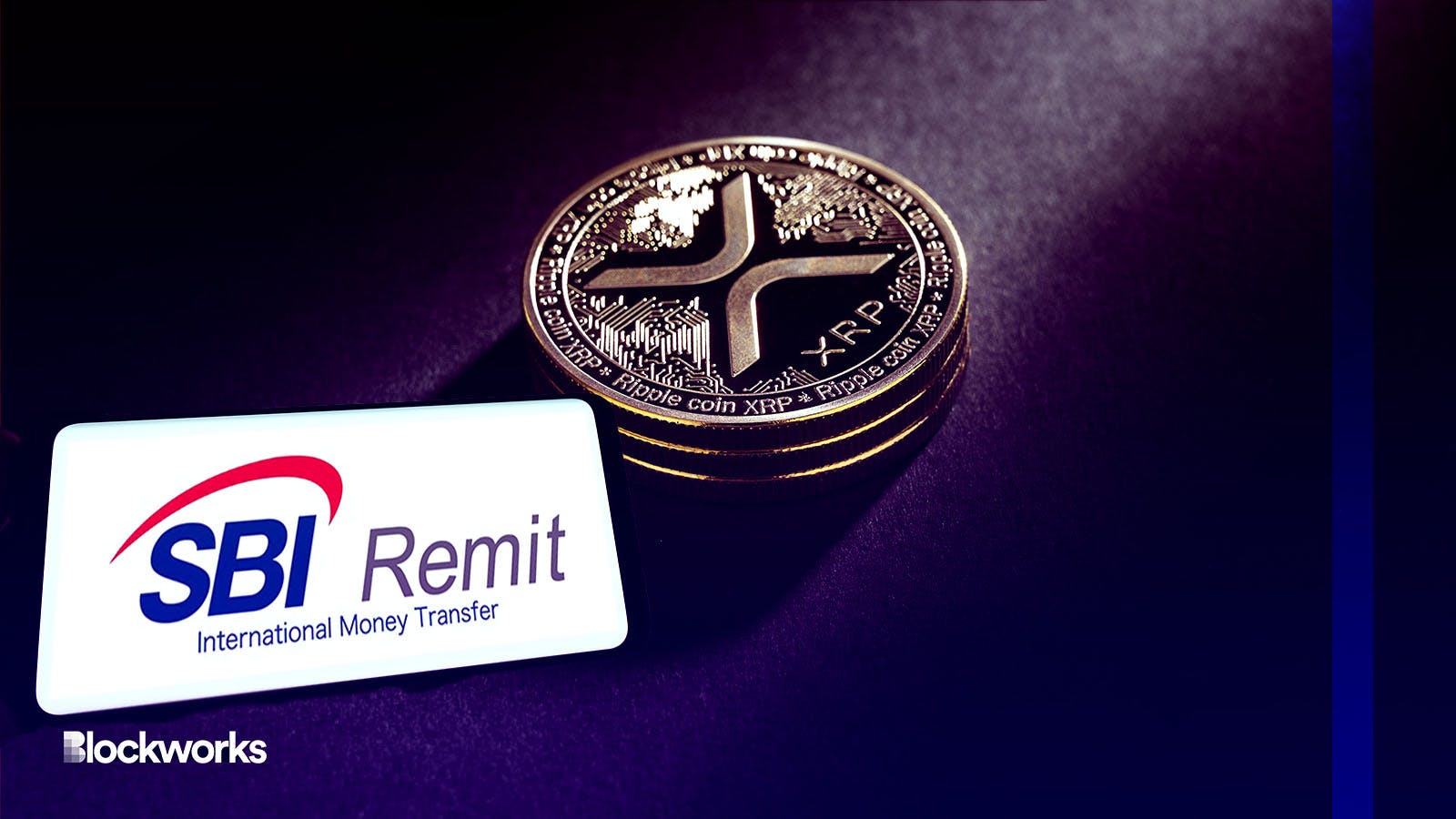SBI subsidiary expands XRP remittance use in Southeast Asia
By leveraging XRP as a bridge currency, SBI Remit is hoping for quicker, more cost-effective money transfers across Southeast Asia

TGLP/Shutterstock, modified by Blockworks
SBI Remit, an international remittances subsidiary under Japan’s SBI Holdings, has expanded its services using Ripple’s XRP to bank accounts in the Philippines, Vietnam and Indonesia.
The move comes in partnership with SBI VC Trade, an affiliate within the SBI Group and San Francisco-based blockchain firm Ripple, the companies revealed Wednesday.
By leveraging XRP as a bridge currency, SBI Remit is hoping for quicker, more cost-effective money transfers, aiming to accelerate adoption in targeted markets, according to a translation of a statement.
The operational framework for the newly expanded service will see SBI VC Trade executing real-time transfers of XRP in response to remittance requests initiated by SBI Remit.
To further its cross-border services, SBI Remit has entered into a partnership with Malaysia-based Tranglo, a cross-border payments provider, facilitating remittances in local fiat currencies.
SBI Remit aims to target Southeast Asian markets, where daily remittance volumes channeled into local bank accounts are considered to be a lucrative business.
Cross-border inflows across South Asia last year surged more than 12%, reaching $176 billion, fueled by robust labor markets in OECD host countries, according to the World Bank’s figures.
SBI has utilized Ripple Payments, Ripple’s international money transfer system, to facilitate cross-border transactions since 2017.
SBI Remit adopted XRP as a bridge within its Ripple Payments system in 2021, marking the first instance in Japan of utilizing crypto as a bridge between two distinct fiat currencies.
Future expansion plans include a focus on corporate and inbound transactions, to be achieved through partnerships with Ripple and other fintech firms, SBI said.
A crypto-focused subsidiary of the Japanese financial services giant, seeking to expand its involvement in the industry, was granted a license last year to begin offering its securities to institutional clients in Singapore.
Get the news in your inbox. Explore Blockworks newsletters:
- The Breakdown: Decoding crypto and the markets. Daily.
- 0xResearch: Alpha in your inbox. Think like an analyst.






